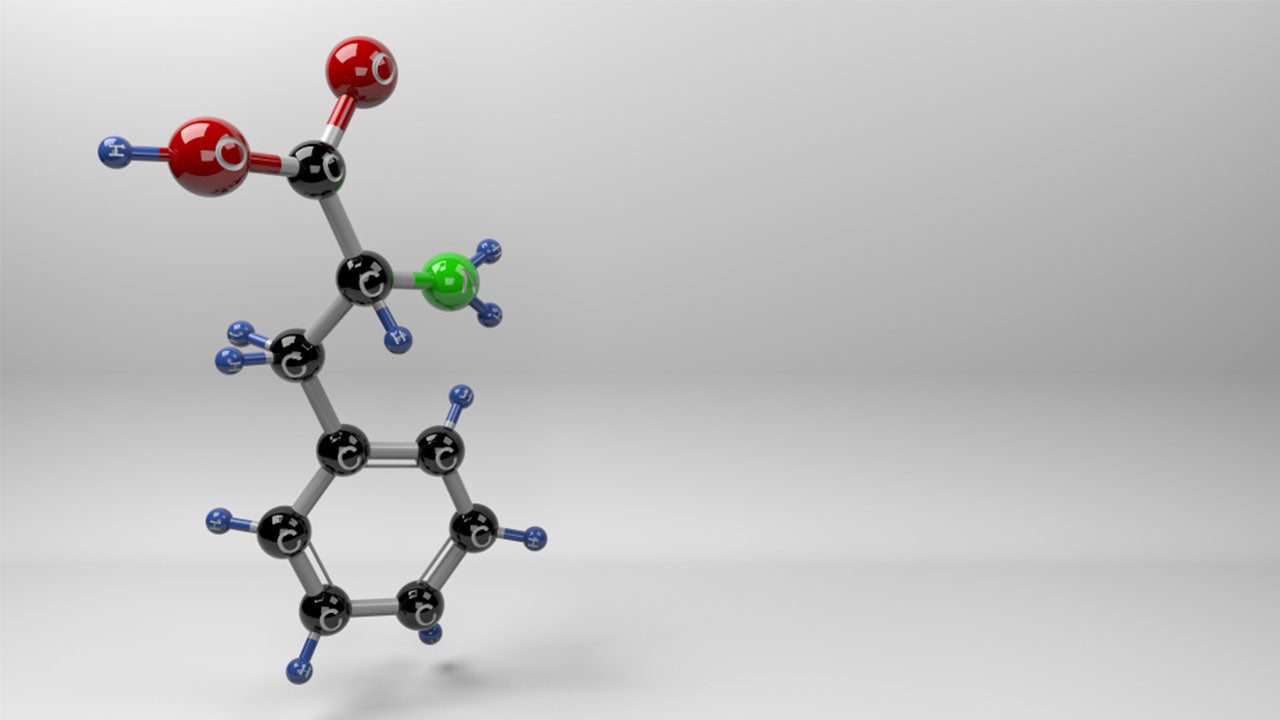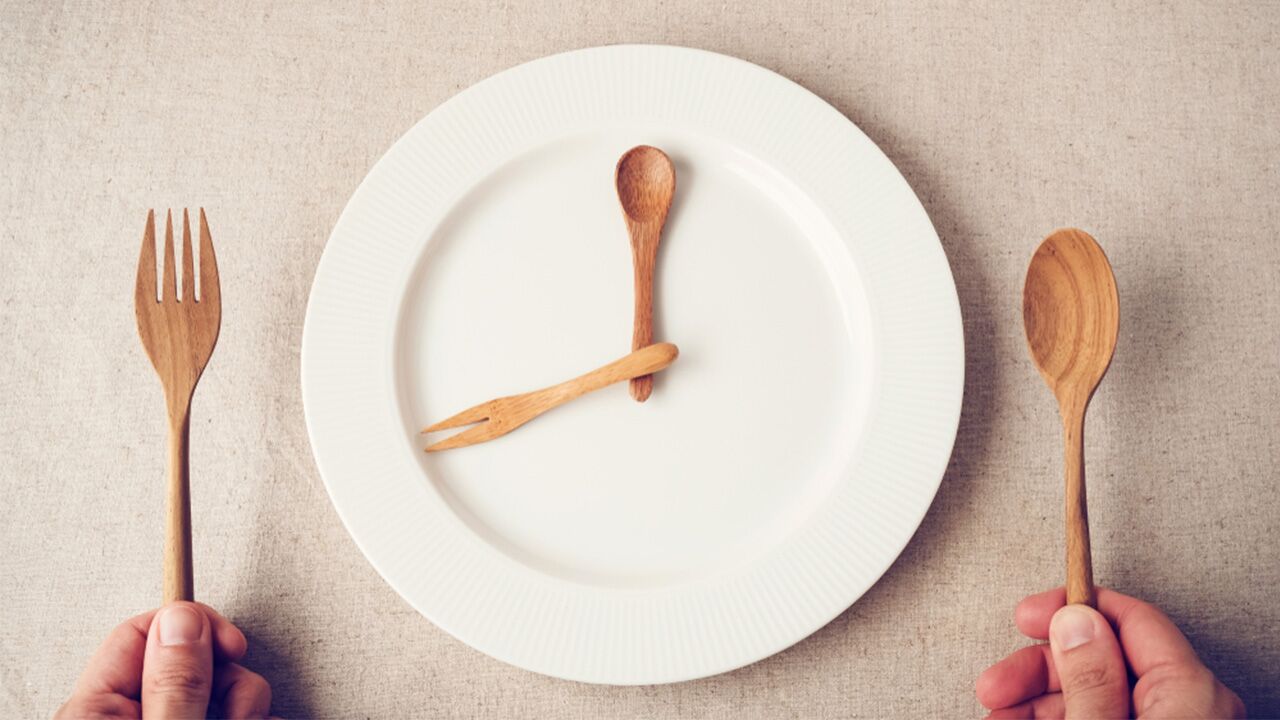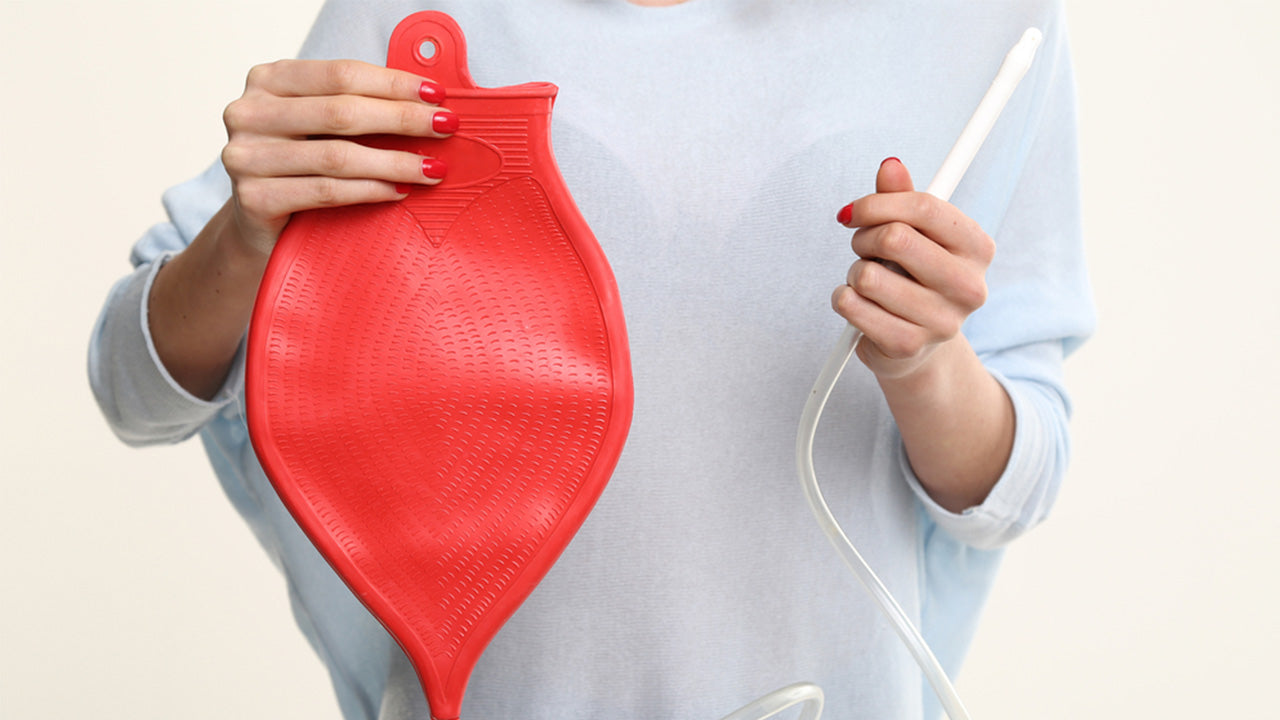L-Phenylalanine: Weight-Loss Solution?
 By: by Amino Science
By: by Amino Science

If you're looking for proven ways to support weight loss, you may have come across L-phenylalanine, an essential amino acid in your body that is important for muscle development and skin health. L-phenylalanine weight-loss studies are newer to the field, and people are naturally curious: how can L-phenylalanine help you lose weight? Read on to find out, along with its potential side effects and the natural food sources of L-phenylalanine.
What Is L-Phenylalanine?
Phenylalanine is an essential amino acid, and one of the building blocks of protein and the muscles in your body. Phenylalanine is considered "essential" because you need it to function, but your body cannot synthesize enough of it independently, so it must be consumed either from food or via phenylalanine supplementation.
There are two forms of phenylalanine, L-phenylalanine and D-phenylalanine. They are very nearly identical, but with slightly different structures. It's the L-form molecule that is gained from foods and used to make new proteins in the body, while the D-form of phenylalanine may be used in various medical applications. L-phenylalanine can be found in both animal and plant sources of food.
Above the role phenylalanine plays in protein synthesis, it's also important for producing other molecules in the body, several of which are important for signal transmission. Phenylalanine has also been the subject of clinical research on skin disorders (vitiligo), pain, and depression.
A note of caution: Phenylalanine is considered dangerous for those with phenylketonuria (PKU), a genetic disorder which causes phenylalanine levels to build up. For more information on possible side effects, skip to the end of this article.
Phenylalanine for Normal Functioning
Phenylalanine is principally needed for protein creation, and proteins are not just located in your muscles. Many proteins are at work in your blood, brain, and internal organs—basically all throughout your body. Even more valuable, phenylalanine is needed to make other important molecules, including:
- Epinephrine and norepinephrine: These are the molecules that give you the "fight-or-flight" response to danger and stress.
- Tyrosine: This fellow amino acid directly results from phenylalanine, and is used to make protein or converted (if in excess) to the other molecules in this list.
- Dopamine: This molecule allows us to feel pleasure and happiness, and also plays a vital role in the development of our memory and learning skills. Basically every happy memory you have, you can thank dopamine for.
Without proper functioning of these molecules, your health will be at risk, and phenylalanine is needed to make them. Not only that, medical application of phenylalanine can help treat specific medical conditions.
Phenylalanine for Certain Medical Conditions
Scientific studies have been performed to explore phenylalanine as a treatment for certain medical conditions. For instance, phenylalanine may help treat vitiligo, a skin condition that causes pigmentation loss and the appearance of blotchy patches on the body. Phenylalanine supplements have been studied in conjunction with ultraviolet (UV) light exposure to treat this pigmentation disorder.
Phenylalanine's ability to produce dopamine has been applied to instances of depression, which is a mood disorder often associated with dopamine dysfunction. Both L- and D-forms of phenylalanine have been studied for treating depression. According to a study published in the Journal of Neural Transmission, of 12 participants with depression, two-thirds showed improvement after receiving a mixture of L- and D-phenylalanine.
Alongside vitiligo treatment and anti-depressant application, phenylalanine has also been studied for use in the following conditions.
- Parkinson’s disease: There is evidence that phenylalanine could be beneficial in treating the symptoms of Parkinson's disease, though more research is required.
- Alcohol withdrawal: Phenylalanine, along with some fellow amino acids, has shown indications that it could be useful in treating alcohol withdrawal symptoms.
- Chronic pain: D-phenylalanine may help with pain relief in certain instances (like low back pain), though so far research results are still spotty and not all of the studies produced results with statistical significance.

L-Phenylalanine: Weight-Loss Applications
As a dietary supplement, L-phenylalanine may help with weight loss in a couple of ways. First the hormone cholecystokinin (CCK), which is stimulated by L-phenylalanine, may act as an appetite suppressant and thus lead to lower calorie consumption throughout the day. It's been difficult so far for scientists to pin down whether the consumption of more L-phenylalanine will directly impact CCK production, but it is a weight-loss link that is being explored.
L-phenylalanine's direct impact on dopamine via L-tyrosine's weight-loss influence has more evidence to back it up. Because dopamine is responsible for feelings of pleasure (the kind you may get from eating your favorite dessert, for instance), regulating dopamine levels can be beneficial in the treatment of obesity. If L-phenylalanine can be used to keep your tyrosine and thus dopamine levels high while you go on a diet (and cut your usual dopamine supply), it may help reduce food cravings and lead to more sustainable weight loss.
Phenylalanine is also considered a ketogenic amino acid along with tryptophan, tyrosine, isoleucine, threonine, and lysine and leucine (which are exclusively ketogenic, as opposed to the glucogenic amino acids). Phenylalanine is a switch-hitter, and can operate both as a glucogenic (for synthesizing glucose, or sugar) or ketogenic (for synthesizing ketone bodies, or fat burners). Those looking to start a ketogenic diet to lose weight may find amino acid supplementation all the more useful in achieving fast and healthy weight loss.
Possible Side Effects of Phenylalanine Supplementation
It's "generally recognized as safe" to take L-phenylalanine according to the Food and Drug Administration (FDA). And various studies suggest no adverse side effects reported for supplementation within 23–45 milligrams per pound of body weight. Still there are still some people who should not take L-phenylalanine.
Pregnant women are advised to avoid it, as are those with the disorder PKU who are genetically unable to properly process phenylalanine and usually are directed to eat a low-protein diet throughout their lives.
For otherwise healthy individuals, phenylalanine is still essential, and can easily be gained from eating foods high in phenylalanine. For those interested in taking it as a nutritional supplement, consult a health care professional for medical advice before adding it to your routine. Taking a single amino acid can adversely affect the balance of essential amino acids in your body. For this reason, we recommend taking phenylalanine alongside a complete essential amino acid supplement such as Life.
Foods High in Phenylalanine
For food sources of phenylalanine, you can choose from both animal and plant products.
- Animal sources of phenylalanine: Eggs, certain meats like seafood (cod), and Parmesan cheese.
- Plant sources of phenylalanine: Soy products, seaweed, nuts, and seeds (particularly squash and pumpkin seeds).
Eating a nutritious variety of protein-rich foods should effortlessly provide you with plenty of phenylalanine, as well as the other essential amino acids.
Phenomenal Phenylalanine
L-phenylalanine is the essential amino acid that can help regulate depression, pain, skin disorders, and weight loss if applied properly as a supplement. Otherwise gaining phenylalanine from a normal diet is essential for your overall health and well-being.

Up to 25% off Amino
Shop NowTAGS: tips
Join the Community
Comments (0)
Most Craveable Recipes




 833-264-6620
833-264-6620



















